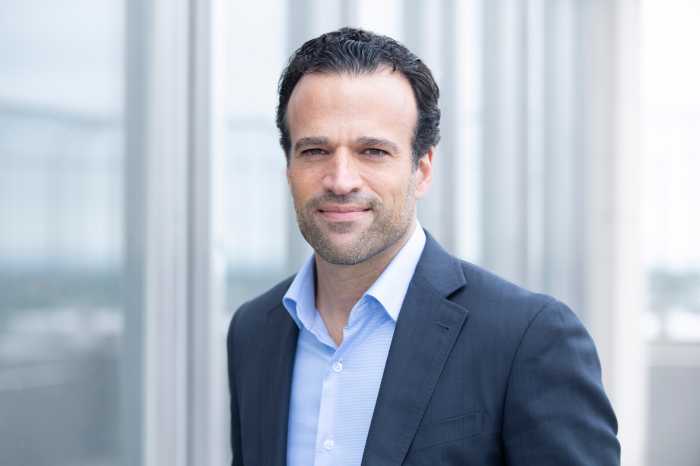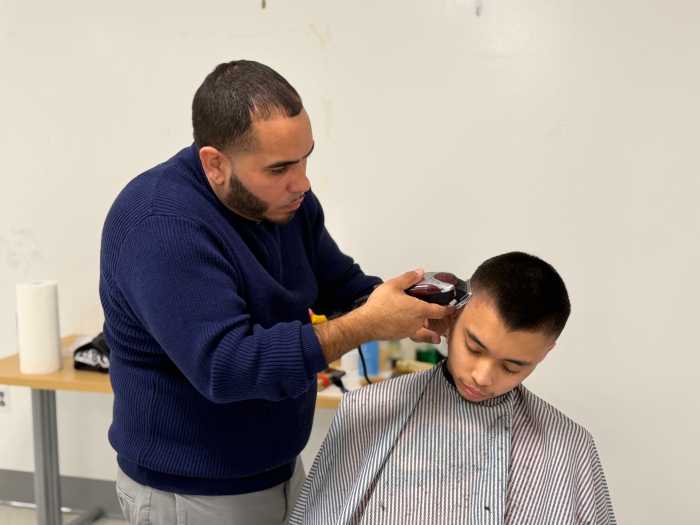Serge Abergel is the chief operating officer of Hydro-Québec Energy Services, the U.S. subsidiary responsible for hydropower export initiatives to the New York and New England markets. He previously served as the director of communications and in various corporate positions. Prior to joining Hydro-Québec in 2014, Serge was a public affairs officer in the Canadian Armed Forces. He holds a bachelor’s degree in operations management from HEC Montréal.
Since the passing of the Environmental Bond Act in 2022, efforts to protect our environment and communities have not slowed down. As bills like the NY HEAT Act and Packaging Reduction and Recycling Infrastructure Act make their way through New York’s legislative bodies, the future of New York continues to grow greener. The 2024 PoliticsNY & amNY Metro Power Players in Climate, Energy & Sustainability are all leaders in their respective fields, dedicated to protecting the environment, providing vital services to every day New Yorkers and innovating positive environmental change. From environmental nonprofit executive directors to public officials pushing for policy change to directors of new innovative energy projects, the 2024 PoliticsNY and amNY Metro Power Players in Climate, Energy & Sustainability and ensuring a clean, green future for us all.
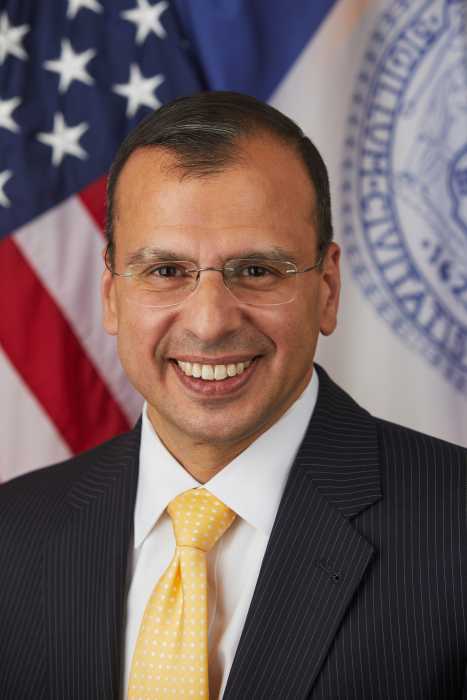
Rohit Aggarwala
Commissioner, NYC Department of Environmental Protection

Rohit T. “Rit” Aggarwala is commissioner of environmental protection and chief climate officer for the City of New York. Previously, he was a founding executive at Sidewalk Labs; started Bloomberg Philanthropies’ Environmental Grantmaking program; led the C40 Cities Climate Leadership Group; and led the development and implementation of PlaNYC, NYC’s sustainability plan. Aggarwala holds a Ph.D., MBA, and B.A. from Columbia University and an M.A. from Queen’s University in Ontario.
What is one thing your organization hopes to accomplish in 2024?
The NYC Department of Environmental Protection is very focused on stormwater and managing the flooding that can occur during severe storms, which is increasing due to climate change. In 2024, we’ll be starting a set of sewer upgrades as well as continuing to expand our network of green infrastructure, including porous pavement and curbside rain gardens. We’ll also be advancing longer-term planning for stormwater resilience, which will be a decades-long, multi-billion-dollar effort.
Do you have any advice for someone looking to pursue a career in your field?
I meet lots of students who know a lot about the climate crisis. But to have a successful career you need to make a direct contribution to solving it. That could be through good management, innovative financing, successful advocacy, or good communication – there are many ways to have an impact. So, you need a skill, not just a knowledge base, because the key thing is to be able to solve problems, not just to understand them.
What is one thing everyone can do to help protect the environment?
Stop drinking bottled water and eat less meat. NYC’s tap water is as good as any bottled water, and meat is bad for the planet, for your health, and for your wallet. You don’t need to be a vegetarian to make an impact; just switch a few meals a week to veggies and you can significantly reduce your personal carbon impact.
What can policymakers do to aid in your organization’s work?
How quickly and cheaply we can build infrastructure will make all the difference to whether New Yorkers are safe from climate change. We need New York State to stop discriminating against New York City when it distributes water infrastructure funding. And we need the City Council to reauthorize lien sales because some New Yorkers aren’t paying their water bills and that will mean water rates go up for everyone else.
Vincent Albanese
Executive Director, NYS Laborers' Political Action Committee
Vincent has been an advocate for the Laborers’ in a variety of sectors and industries for over a decade. While the Laborers’ members work in virtually every related construction field, the past few years there has been a major focus on creating opportunities in the renewable space. Vincent has become one of New York’s leading voices for a sustainable industry that also includes opportunities for the middle class.
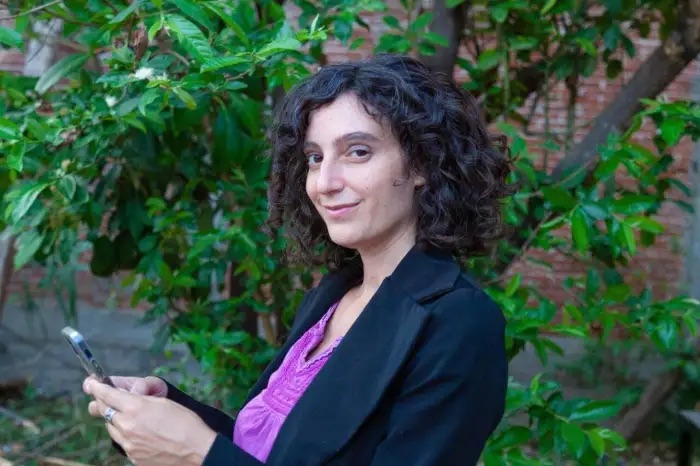
Jessica Azulay
Director, Alliance for a Green Economy

With more than 20 years of experience in grassroots organizing, Jessica Azulay has led Alliance for a Green Economy (AGREE) since 2011. In this role, Jessica has become a go-to expert on utility regulations and clean energy funding for New York’s environmental movement. Known for her facilitation skills, she has helped build multiple coalitions, including the New York Energy Democracy Alliance, Renewable Heat Now, Better Buildings NY, and Upgrade NY.
What is one thing your organization hopes to accomplish in 2024?
Pass the NY HEAT Act to remove barriers in NY law that cost New Yorkers a fortune and prevent utilities from replacing fracked gas heating with more cost-effective and cleaner alternatives. Transitioning our home heating away from fracked gas is one of our biggest challenges as we work as a state to meet our climate goals. Without NY HEAT we will continue spending money going backwards instead of freeing up money to go forward faster.
Do you have any advice for someone looking to pursue a career in your field?
Volunteer with a local climate organization to learn what kind of role you want! The policy work is nothing without strong grassroots organizers, researchers, implementers, and communicators. Working locally gives you the kind of education you can only get on the ground, helps figure out your strengths, and hones your skills. In Central New York, you can even join AGREE, or see what members of the Renewable Heat Now campaign are in your area.
What is one thing everyone can do to help protect the environment?
Two things. First, join the movement! However much or little time you have to offer, there’s something you can do to help win the system-wide changes we need and build a green economy — from giving a small bit of economic support to showing up to events or meetings. Second, see what you can do to green your own home. Our regional clean energy hubs are designed to help you do just that! Find yours at: https://www.nyserda.ny.gov/All-Programs/Regional-Clean-Energy-Hubs
What can policymakers do to aid in your organization’s work?
Listen to what New Yorkers want, not fossil fuel and gas utility lobby misinformation. The vast majority of people want New York to be a climate leader, to lower our bills, and to protect our planet for the next generation. The more our representatives openly stand up to the fearmongering disinformation campaigns meant to slow or stop our transition, the less effective our opponents will be.
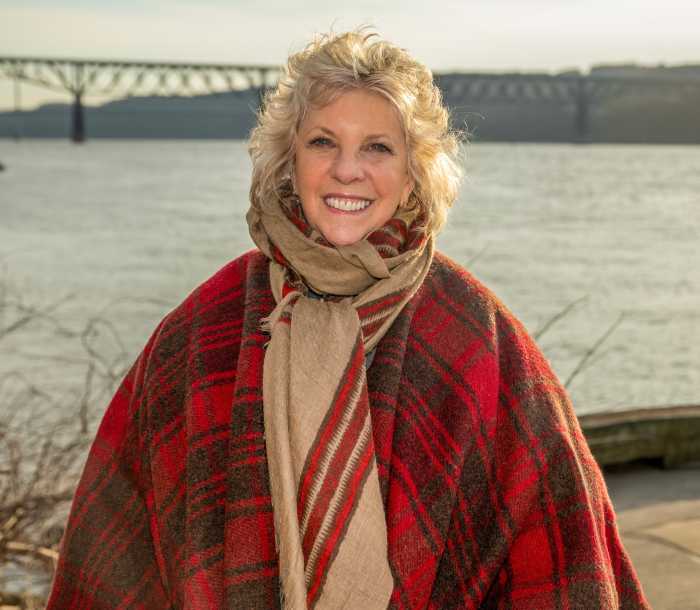
Didi Barrett
Assembly Member, New York State Assembly | Chair, New York State Assembly Energy Committee

Assembly Member Didi Barrett, first elected in a special election in March 2012, has been a tireless advocate for protecting her Hudson Valley district’s working farmland, parks, and natural resources, including the majestic Hudson River. Appointed chair of the Assembly’s Energy Committee last year, Didi has met with hundreds of advocates, stakeholders, developers, innovators, utilities and more to best understand how to help all of New York State meet and pay for our green energy transition.
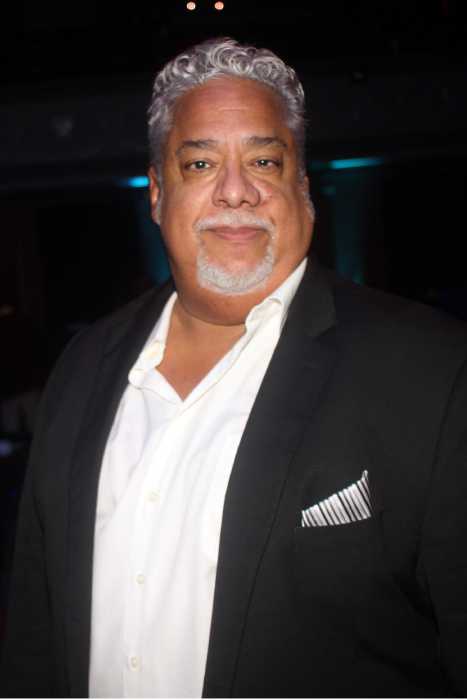
Eddie Bautista
Executive Director, New York City Environmental Justice Alliance

Eddie Bautista is executive director of the New York City Environmental Justice Alliance (NYC-EJA), a citywide network of community organizations of color fighting for environmental justice. Under Eddie’s leadership, NYC-EJA’s campaign accomplishments re-defined environmental/climate justice advocacy in NY – we co-led coalitions that won: NYC’s 1st “Waste Equity” law, Commercial Waste Zones, Congestion Pricing, the NYC Climate Mobilization Act and the NYS Climate Leadership & Community Protection Act, the nation’s most aggressive climate action law.
What is one thing your organization hopes to accomplish in 2024?
The threats posed by climate change are so pervasive and insidious that we don’t have the luxury of tackling just one issue. NYC-EJA was founded in 1991 by community-based organizations of color with two clear, yet profound charges: to identify the systemic reasons why communities of color were environmentally and economically overburdened, and to develop strategies to dismantle those inequitable systems. Systems change demands multi-issue intersectional strategies.
Do you have any advice for someone looking to pursue a career in your field?
If said field is climate and/or environmental justice, become familiar with sets of principles like the Environmental Justice Principles and the Jemez Principles of Democratic Organizing – one provides substantive values and the other procedural norms, both of which ground and define the EJ/CJ movements across the country. Learn the intersectionality of racism and the environment – center frontline impacted communities in your work, be humble, accountable, transparent, practical, principled, collective – and fearless.
What is one thing everyone can do to help protect the environment?
The one thing everyone must do to advance environmental protection is to demand political action. While individual efforts to curb one’s carbon footprint are always welcome, the largest contributions to climate change are systemic and societal dependencies on fossil fuels – so we must break our systemic and societal addictions. To do so broadly, we need wholesale political, legal and economic transformation – which is starting to happen.
What can policymakers do to aid in your organization’s work?
The environment is literally everything around us (including “us”), so there’s no end to the help policymakers can lend to environmental improvement. If your interest extends to the most vulnerable and disproportionately impacted amongst us, visit our website (www.nyc-eja.org) and social media pages to learn more about the dozens of environmental/climate justice campaigns New York City Environmental Justice Alliance champions, both currently and historically – and how you can plug in, as a policymaker.
Gina Bocra
Chief Sustainability Officer, Bureau of Sustainability at the Department of Buildings
Gina Bocra, AIA, LEED Fellow, is chief sustainability officer at the NYC Department of Buildings (DOB), bringing over 26 years of experience in sustainability. Throughout her architecture career, she has volunteered with the US Green Building Council, the American Institute of Architects, and the American Society of Heating, Refrigerating, and Air Conditioning Engineers. At DOB, Gina leads a team tasked with enforcing New York City’s sustainability laws regulating buildings, including NYC’s landmark carbon emissions law.
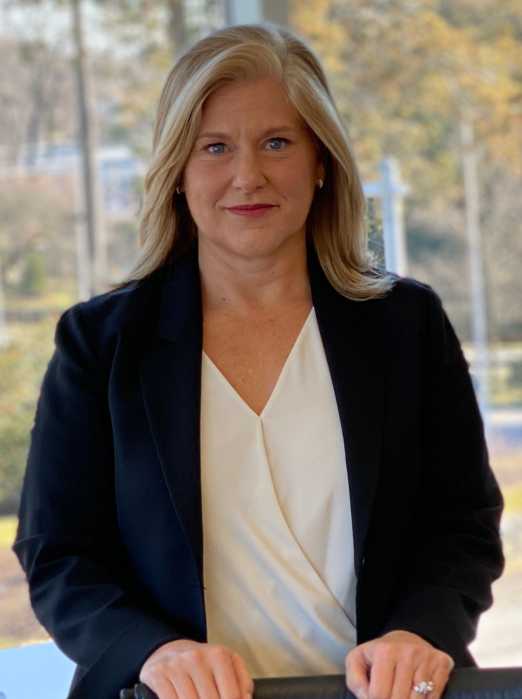
Julia Bovey
Director - Offshore Wind, Eversource Energy - Offshore Wind

From the Lackawanna to Long Island, Julia Bovey is part of New York’s most exciting energy achievements, including wind turbines on the shores of Lake Erie and Upstate dairy farms, and, this month, the completion of the energy system for NY’s first offshore wind project. Bovey earned her policy chops at the NRDC and, after Superstorm Sandy, headed up the State’s reform of the Long Island energy system. She lives in Brooklyn and Fire Island.
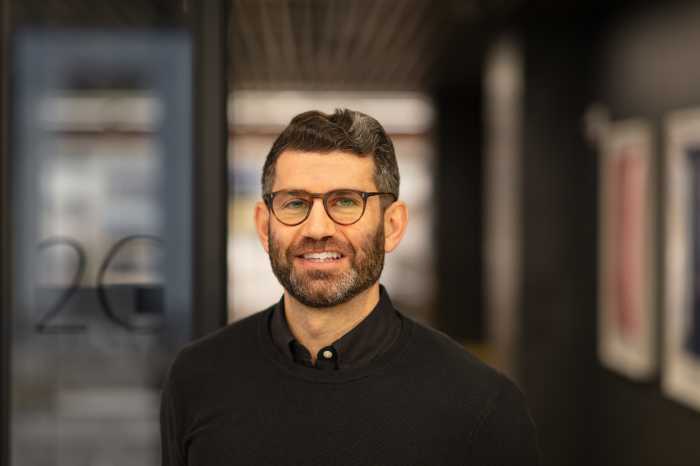
David Briefel
Sustainability Director, Gensler

David Briefel is a studio director for the climate action and sustainability practice area in Gensler’s New York Office. His completed work includes the American Institute of Architects Committee on the Environment Award-winning Etsy Headquarters and Ford Foundation projects and many strategic efforts for clients pursuing portfolio-wide climate action. David has led foundational research initiatives through the Gensler Research Institute and has spearheaded the development and roll-out of the Gensler Product Sustainability (GPS) Standards.
What is one thing your organization hopes to accomplish in 2024?
We launched the Gensler Product Sustainability Standards in January 2024 to establish sustainability performance criteria for the 12 most commonly used, high-impact product categories selected for our architecture and interior projects. This year, we look forward to continuing to positively impact the built environment supply chain, expand GPS, and keep open lines of communication between architects, owners, contractors, and manufacturers so that we can continue to advance these standards.
Do you have any advice for someone looking to pursue a career in your field?
While mastering the fundamentals of building science makes you credible professionally, conveying the urgency and benefits of sustained climate action in a digestible manner will ultimately determine your success. It is critical to understand how to present information compellingly to different audiences and meet them where they are. There are many qualified technical experts in our field, but few who can convey data – and passion – visually and urgently enough to compel people into action.
What is one thing everyone can do to help protect the environment?
It depends on your sphere of influence, but everyone has a role to play in changing the dangerous course we’re on. People who can guide business or politics may create an impact by supporting the infrastructure needed to transition away from fossil fuels, while those who work in grassroots movements can apply pressure through activism. Volunteering, speaking out, advocating for changing supply chains, and lobbying for legislation are all needed.
What can policymakers do to aid in your organization’s work?
Climate action requires massive public funding, infrastructure, and a robust system of carrots and sticks to become viable. Markets have not moved fast enough by themselves to implement the accelerated change we need. Policymakers can play a role by requiring investment and instituting strategic penalties to support widespread solutions, such as supporting low-carbon alternatives to materials like concrete and steel, and by ensuring that renewable infrastructure exists to power widespread building and neighborhood decarbonization.
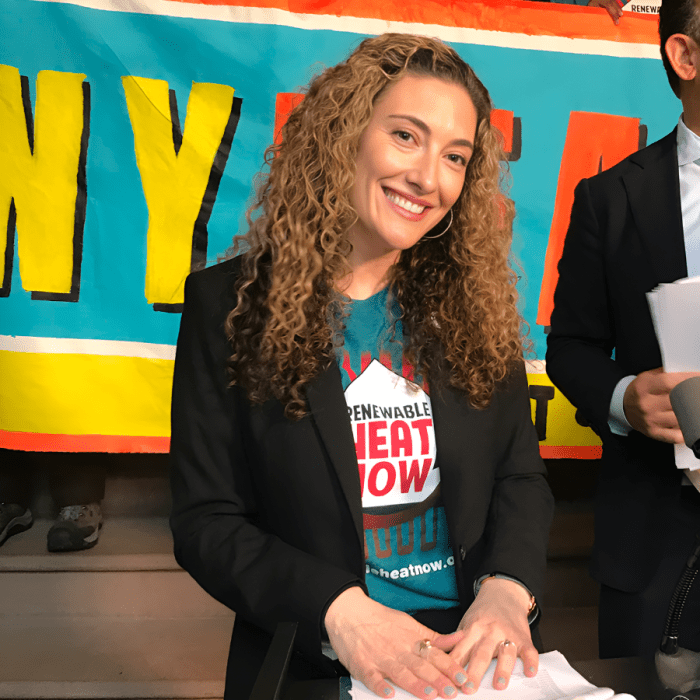
Betta Broad
Campaign Director, New Yorkers for Clean Power | Director of Advocacy & Organization, Association for Energy Affordability

Elizabeth “Betta” Broad is a native New Yorker and longtime activist for social justice, peace and sustainability. She primarily works on the transition to an equitable clean energy economy in New York State. As the director of advocacy and organizing at the Association for Energy Affordability, and as the campaign director and co-founder of New Yorkers for Clean Power, she is focused on making climate and clean energy solutions accessible to everyone.
What is one thing your organization hopes to accomplish in 2024?
Our top priority is passing the NY HEAT (Home Energy Affordable Transition) Act to stop subsidizing and investing in the fracked gas distribution system, and instead invest in making buildings more efficient and electrified. The NY HEAT Act also includes important affordability protections so that no New York household would pay more than 6% of their income on energy bills.
Do you have any advice for someone looking to pursue a career in your field?
If you’re interested in a clean energy career, I would recommend talking to as many people as possible who are in the field, and ideally, getting an internship at an organization or company to see if it would be a good fit, and to get your foot in the door. We have a new program called Clean Energy Careers NY to scale up equitable clean energy career pathways programs, check it out at cleanenergycareersny.org
What is one thing everyone can do to help protect the environment?
Everyone can make an effort to reduce their energy use, whether in their home or the transportation they use. The two largest sources of greenhouse gas emissions by sector in New York State are buildings and transportation.
What can policymakers do to aid in your organization’s work?
Policymakers need to make an effort to connect with and listen to the organizations and companies that are on the ground implementing programs and technologies. There’s often a disconnect between our incredibly ambitious climate goals and the reality that we’re facing, especially in historically underserved communities. In order to scale up and make it equitable, we need to get beyond our silos and work together to address the barriers to clean energy and electrification.


